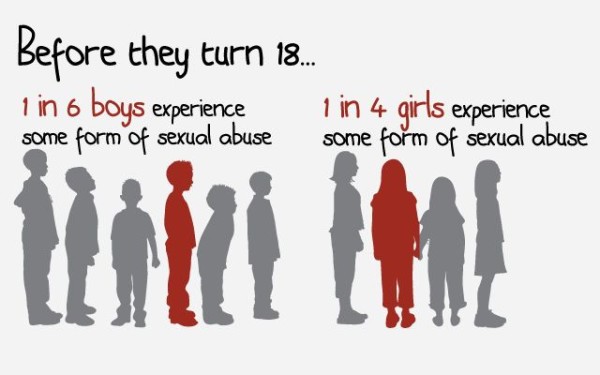In July 2014, a six year old child was raped in an elite school in Bangalore. In January, this year, a class V student was raped in a school in Mumbai. News stories of children being raped and molested in places that one would assume as safe – schools and homes, have become so common place, that they have lost their shock factor. According to an official study conducted by the Ministry of Women and Child Development, more than 53 percent of children in India are subjected to sexual abuse. Very few of these cases actually get reported, and in 50 percent of the cases, the perpetrators are people whom the child knows and trusts.
There is a natural tendency to shy away from the subject – in most cases we are not ready to consider that even our child can be a victim. A major reason for this is the fact that the subject of sexual abuse is still considered a taboo in the country, and there is a lack of awareness, or unwillingness to discuss it with children. Hence, as parents and caregivers of children, we must ensure that we keep our children aware about the possibilities of abuse and teach them to be body safe. Here are some important areas to cover while teaching your child about sexual abuse:
Teach your child about safe/secret touch: While touching and holding our children is the most natural thing we do as parents, others may not look at it in such an innocent way. Hence, it is important to inform your child about safe and secret touch. Tell your child that it is not okay for others, apart from their parents (and that too only while they are bathing them, or in case they are hurt), to touch their private parts, or ask them to look at other’s private parts. Explain to them what good/safe touch is – a touch which shows that the person cares – a handshake, a pat on the back are all examples of safe touch. Story books or books on the human anatomy can be used to explain instances of secret/unsafe touch to them.
Use correct names for genitals: While we teach children about their eyes, nose, mouth, and other parts of the body, more often than not, we tend to give names while talking about the genitals, and shy away from addressing them the way they are. This builds embarrassment and secrecy around issues of sexual abuse and may deter the child from speaking up, in case an incident of abuse happens. By telling them exactly what each part is called, they can specifically say what happened, in case of abuse.
Teach your child to say ‘no’: ‘No’ is an important word that your child must learn to use, especially if the child feels uncomfortable with the way someone is touching or talking to him/her. In a large number of cases, the sexual predator is someone that the child knows and trusts, and thus may hesitate to say no. Hence, it is important to tell the child that she/he has the right to say no to any situation that makes them feel unsafe.
Talk to your child about his/her day: Speaking to your child about how their day went, and the different activities that she/he did at school will help the child open up, in case any untoward incident happened. Reinforce to them that no matter what happens they can talk to you about what happened in school or while playing.
Observe how your child plays/behaves: Children who are sexually abused may go through behavioural changes. Some may become more withdrawn, or more aggressive, may ask questions about the body or human sexuality, may start to panic when alone, with certain people, or in certain places, may start engaging in sexual play with toys, other children or friends. Role play with children and see how they react to certain situations – this will help them drop their defences, in case anything wrong may have happened.
Teach your child to respect and have control over their own body: Children should be taught that their body is theirs and no one else has any right over it. Never force your child to hug or kiss any one, at social gatherings. And, tell them that they should say no in case an adult asks for a hug or a kiss, and they do not want to give it.
Tell your child that she/he can share their secret with you: In many cases the abuser tells the child to keep what happened between them a secret. Explain to your child that nothing should be kept a secret from you, and if someone asks them to do so, not to trust that person and to tell you or the other parent immediately.
While, it is impossible to ensure safety all the time, knowledge and awareness can go a long way in ensuring that your child is as safe as possible.



Leave a reply